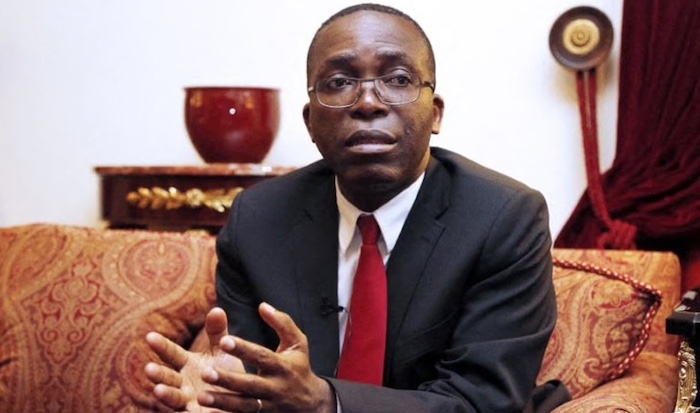KINSHASA, Congo — Former Congolese Prime Minister Matata Ponyo Mapon was convicted Tuesday in one of the country’s most significant corruption trials in recent years, accused of embezzling $245 million from a massive but failed agriculture project launched under ex-President Joseph Kabila.

The Constitutional Court handed Ponyo a 10-year sentence of forced labor after ruling he had diverted funds during the development of a state-run corn farm meant to spark an agricultural revolution. The project, launched as part of an ambitious initiative to create 22 large-scale farms across the country, collapsed just three years after it began operations in 2014.
Two other high-profile figures were also convicted in absentia: Deogratias Mutombo, former governor of the Central Bank of Congo, and Christo Grobler, a South African businessman involved in the project. Both were sentenced to five years of forced labor, though none of the three men are currently in custody.
Ponyo’s attorney, Laurent Onyemba, denounced the ruling, claiming it was politically motivated and unfair. He confirmed that the former prime minister remains in Kinshasa. Congolese officials say Grobler is in South Africa, while Mutombo is believed to be living in Belgium.
The court’s ruling marks a symbolic victory for President Felix Tshisekedi, who has pledged to root out corruption stemming from Kabila’s nearly two-decade rule. The prosecution of Ponyo, once one of Kabila’s closest economic stewards, underscores Tshisekedi’s efforts to dismantle entrenched networks of graft.
The failed farm project, situated 260 kilometers southeast of Kinshasa, was intended to be a flagship of economic diversification and food security. The government had contracted a South African company to manage the development, but the firm withdrew in 2017, citing non-payment by Congolese authorities.
The corruption case, opened in 2021, came after Tshisekedi appointed an investigative task force to review the previous administration’s handling of state funds. What they uncovered in the farm project—dubbed Agro-Industrial Park of Bukanga-Lonzo—became a touchstone in the president’s broader anti-corruption campaign.
The trial also unfolds against a backdrop of political tension. Former President Joseph Kabila, who relinquished power in 2018, has been living mostly in South Africa since late 2023. Tshisekedi’s administration has since accused him of having indirect ties to the Rwanda-backed M23 rebel group, which has seized territory in eastern Congo—an allegation Kabila’s party vehemently denies.
Despite the landmark nature of the verdict, questions remain over whether the convicted officials will be extradited or arrested. For now, the convictions serve more as a political statement than as a clear path to restitution or incarceration.
Reuters



